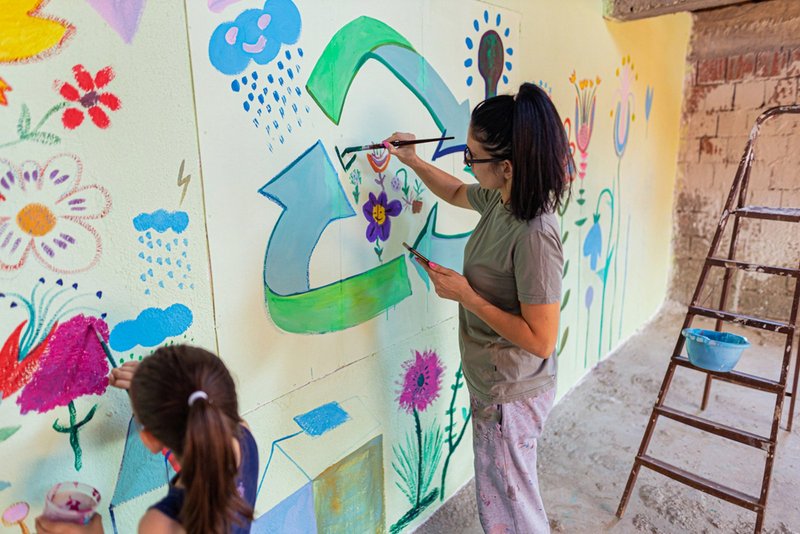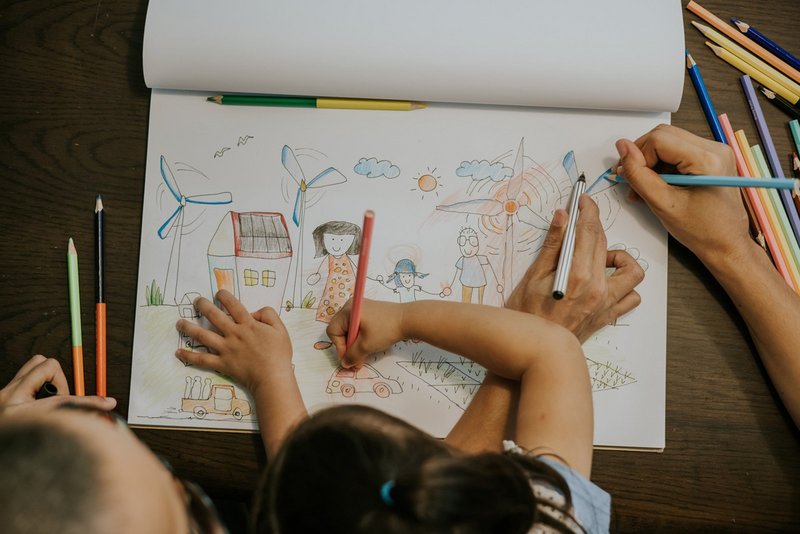
Fuel cells: toys with future technology
To Las Vegas by hydrogen power
By Peter Thomas
What a great trip for the "Hydrofoxes": Members of the school project team from Annaberg (Saxony) won the German national finals in the Horizon Hydrogen Grand Prix (H2GP) and flew to Las Vegas in September for the world finals of this car racing series.
3rd place in the Hydrogen Grand Prix in Las Vegas

Their cars came third in the "Second Chance Race" on 14 September and they also scooped the prizes for the best team and the fastest pit stop! And completely emission-free and sustainable since the Hydrogen Grand Prix is fought between model racing cars on a scale of 1:10 powered by fuel cells from Horizon Educational.
Science classes at school can, after all, be really fun - even though STEM subjects (Science, Technology, Engineering and Maths) are sometimes considered to be rather dull. The world final was held at the RE+, a US energy conference. Over 200 children and youngsters from more than 20 countries took part in the competition with cars assembled from experimental construction kits.
Learning for the future through play

Learning about fuel cells as an energy converter at school or through experimental toys at home picks up on an important trend in real world industrial development. "Green" hydrogen, produced by electrolysing water with electricity from solar or wind power, for example, is considered to be one of the most important energy sources of the future. The fuel cell converts the versatile gas back into electricity - for example to power commercial vehicles, trains and machines or to supply local power grids (microgrids).
Fuel cells found their way into kids’ toys a long time ago
Manufacturers of traditional experimental toys have had this subject on their radar for some time. As Hartmut Knecht, mechanical engineer and head of development at Fischertechnik, told us: "Fischertechnik first used a fuel cell in a construction set in the early 2000s. Since then, the topic has undergone constant further development with different fuel cells and various applications".
The product range currently offered by the construction kit manufacturer from Waldachtal in the Black Forest includes the "H2 Fuel Cell Car", launched in 2021, and the "STEM Renewable Energies" kit for secondary level schools which also contains a fuel cell. "We use reversible fuel cells that work in two directions," explained Hartmut Knecht. In electrolysis mode, water can be split into the gases water and oxygen when an electric charge is applied. The process is then reversed and the fuel cell generates electricity from the two gases through what is known as "cold combustion".
STEM construction kits to support school curricula
The teaching kit has been developed to support school curricula in a number of German federal states. "We offer teaching material for schools as well as accompanying tasks for children and young people," explained the Head of Development. Fischertechnik is continuously working on further applications in the field of renewable energy.
Educational toys from industry

Fischertechnik is at home in the field of traditional construction kits and experimental toys. Horizon Educational, on the other hand, has approached educational toys with fuel cell technology from the other direction: The company was founded ten years ago as a subsidiary of fuel cell manufacturer Horizon Fuel Cell Technologies. However, the company's involvement with STEM educational toys has an even longer tradition; the first experimental construction kit to use fuel cell technology was launched back in 2003. Apart from educational toys, Horizon Educational also focuses on the global H2GP competition. In Germany, the global programme, where school project teams compete against each other, is sponsored by the renowned Fraunhofer Institute for Machine Tools and Forming Technology (IWU). Children and youngsters can channel their enthusiasm for cutting-edge drive technology into future-oriented skills while playing.
Hydrogen has a great future
While industrial and logistics companies as well as network operators are thinking about future production methods, transport and use of "green hydrogen", the topic is also gaining importance in the field of experimental and educational toys. After all, not all children and youngsters are as lucky as the pupils from secondary schools in Gladbeck and Gelsenkirchen who were given the great opportunity to visit the "Hydrogen Days" at Westphalia University of Applied Sciences, where they were guests in the laboratories of the Department of Electrical Engineering and Applied Natural Sciences in July 2023. Industrial sectors such as the automotive trade are also focussing on fuel cell technology and passing on their know-how to young people, for example via the web portal "Handwerk macht Schule”, which roughly translates as “Trade goes to school”.
More game innovations at the Spielwarenmesse 2024
More new games, books, learning and experimenting products can be found at the Spielwarenmesse in Nuremberg from 30 January to 3 February 2024.You can contact the participating manufacturers in advance via Spielwarenmesse Digital.
About the author
Telling stories about technology and people: This has fascinated the journalist, author, cultural scientist and lecturer for more than 30 years. Technical toys are always in focus, from construction kits to interactive digital educational toys. After studying and working as a research assistant at university, Peter Thomas writes for daily newspapers, magazines and corporate publications in German and English-speaking countries. In addition to the world of games, his focus is on mobility, security, energy and medical technology.



![[Translate to Englisch:] [Translate to Englisch:]](/fileadmin/_processed_/0/d/csm_202311107_Glitzer_69241493ac.jpg)
